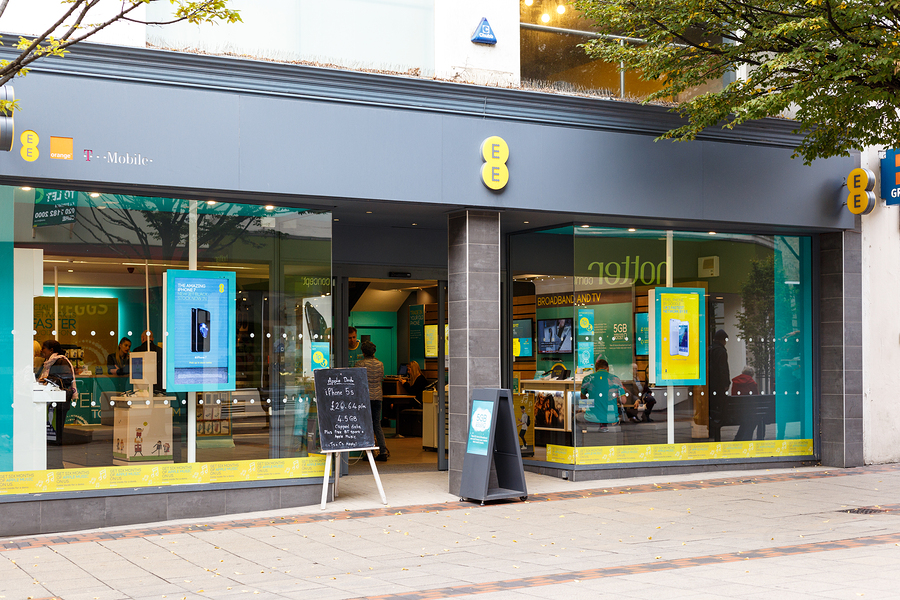Ofcom: 2G can be used for 3G connectivity
The telecoms regulator has told providers they can use their 2G spectrum for 3G mobile access.


UK mobile providers will now be able to use their 2G spectrum allowance for 3G connectivity, following a ruling from Ofcom.
The telecoms regulator released a statement today saying, after consultation with the Government and industry, it had decided to give the go ahead for varying the usage policy for 900MHz and 1800MHz a move it initially proposed back in October.
The aim is to improve 3G connectivity for the growing number of users taking advantage of mobile internet on portable devices, such as smartphones and tablets.
Ofcom said: "Ofcom's decision to open up more frequencies for 3G services is likely to bring significant benefits to consumers."
"Previously mobile phone operators could only use a limited amount of spectrum to deliver 3G services. Today's move means that this spectrum could in future be used to meet the growing demand from smartphone devices and the like for 3G services."
Rob Bamforth, principal analyst at analyst firm Quocirca, welcomed the move as a way to relieve some of the issues the UK's overcrowded spectrum has, but didn't go as far to say it would solve the problem.
"Ultimately there is a squeeze on spectrum (no more dark fibre in the sky) and an apparently insatiable appetite for capacity and coverage," he told IT PRO.
Get the ITPro daily newsletter
Sign up today and you will receive a free copy of our Future Focus 2025 report - the leading guidance on AI, cybersecurity and other IT challenges as per 700+ senior executives
"The 2G spectrum for 3G might help a little with both and especially at the lower frequency in harder to reach locations such as rural and in-building."
Reports showed operators had widely praised the move though, with O2 telling IT PRO: "We welcome the conclusion of Ofcom's licensing procedure and can now begin the process for deploying UMTS900."
We asked for comment from Vodafone and Everything Everywhere, but neither had responded to our request at the time of publication.
Jennifer Scott is a former freelance journalist and currently political reporter for Sky News. She has a varied writing history, having started her career at Dennis Publishing, working in various roles across its business technology titles, including ITPro. Jennifer has specialised in a number of areas over the years and has produced a wealth of content for ITPro, focusing largely on data storage, networking, cloud computing, and telecommunications.
Most recently Jennifer has turned her skills to the political sphere and broadcast journalism, where she has worked for the BBC as a political reporter, before moving to Sky News.
-
 Bigger salaries, more burnout: Is the CISO role in crisis?
Bigger salaries, more burnout: Is the CISO role in crisis?In-depth CISOs are more stressed than ever before – but why is this and what can be done?
By Kate O'Flaherty Published
-
 Cheap cyber crime kits can be bought on the dark web for less than $25
Cheap cyber crime kits can be bought on the dark web for less than $25News Research from NordVPN shows phishing kits are now widely available on the dark web and via messaging apps like Telegram, and are often selling for less than $25.
By Emma Woollacott Published
-
 New Ofcom guidelines show it’s getting tougher on big tech
New Ofcom guidelines show it’s getting tougher on big techNews New Ofcom guidance outlining its plans for the Online Safety Act show the regulator is toughening up on big tech.
By Emma Woollacott Published
-
 Ofcom’s draft guidelines on illegal online content set stringent rules for big tech
Ofcom’s draft guidelines on illegal online content set stringent rules for big techNews The codes of practice gives an insight into what the Online Safety Act will mean in practice
By Ross Kelly Published
-
 UK gov urged to ease "tremendous" and 'unfair' costs placed on mobile network operators
UK gov urged to ease "tremendous" and 'unfair' costs placed on mobile network operatorsNews Annual licence fees, Huawei removal costs, and social media network usage were all highlighted as detrimental to telco success
By Rory Bathgate Published
-
 UK regulator to investigate Amazon, Microsoft, Google cloud services competition
UK regulator to investigate Amazon, Microsoft, Google cloud services competitionNews The regulator is hoping to publish a final report, including its concerns or proposed recommendations, within 12 months
By Zach Marzouk Published
-
 We're addicted to our phones, according to Ofcom
We're addicted to our phones, according to OfcomNews Although always being connected means flexible working, some think it's having a negative impact on relationships
By Clare Hopping Published
-
 Ofcom reveals automatic compensation for ripped-off broadband customers
Ofcom reveals automatic compensation for ripped-off broadband customersNews £142 million will be automatically paid out to customers receiving a delayed service
By Clare Hopping Published
-
 Three fined £1.9m for 999 call flaw
Three fined £1.9m for 999 call flawNews Ofcom investigation reveals emergency calls were routed through a single data centre
By Dale Walker Published
-
 Ofcom fines EE £2.7m for overcharging 40,000 customers
Ofcom fines EE £2.7m for overcharging 40,000 customersNews Customers dialling 150 number abroad were overcharged £245,700
By Joe Curtis Published